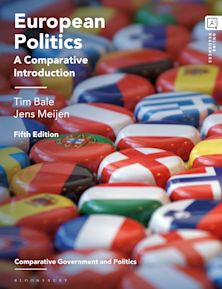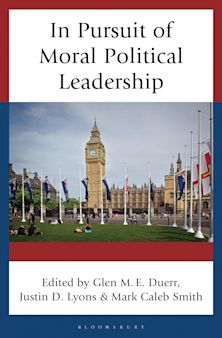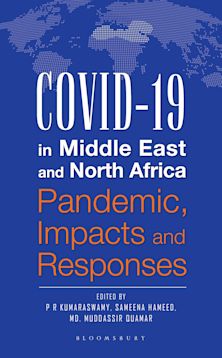- Home
- ACADEMIC
- Politics & International Relations
- Comparative Politics
- Vladimir Putin and the New World Order
You must sign in to add this item to your wishlist. Please sign in or create an account
Description
J. L. Black's latest work is a rich and carefully crafted attempt to expose the textures of Russia's perceptions of itself and its place in the world. Based almost entirely on Russian sources, J. L. Black found himself returning to the old practice of citing and decoding feature items from the Russian press. The difference between then and now, of course, is that at that time there was the struggle to read between the lines while now he reads and tries to digest the lines themselves-the Russian press still provides a very good indication of prevailing moods within the political and military elite establishments of Moscow. It is also still evident that if we are to understand Russian foreign policy-making, we must attempt to view international situations through the prism of Russian analysts and officials. Only then can we draw conclusions based on both our and their perceptions of current events and visions for the future.
Vladimir Putin and the New World Order is divided into two parts. The first is a chronologically organized story of Putin's efforts to find a niche for Russia in the world since his sudden appointment as acting president at the end of December 1999. Throughout, Black places great emphasis on the sequence of events to illustrate important patterns; for example, Putin's tendency to make dramatic overtures to the East as preparation for negotiations with the West. The book's second part focuses on Russia's attention to specific regions of the world and types of international activity. These include individual countries, such as China and Ukraine; regions like Central Asia and the Caucasus; integrative agencies, including the CIS; concepts and practices, among them matters of security and military reform; and the ambivalent Russian associations with so-called "rogue" states.
Table of Contents
Part 2 Part I: Two and a Half Years of Foreign Policy Experimenting
Chapter 3 Yeltsin's Legacy 1999
Chapter 4 Setting the Stage
Chapter 5 Summitry and Beyond
Chapter 6 Negotiating from Strength
Chapter 7 The Mandate Revisited
Chapter 8 From Axis of Evil to Vladimir and George
Chapter 9 Wind Down
Part 10 Part II: The Two-Headed Eagle Looks east and West
Chapter 11 Debating Security and Defense
Chapter 12 The Caucasus Vortex
Chapter 13 Ukraine and Belarus
Chapter 14 Reintegrating Eurasia: The CIS and Central Asia
Chapter 15 Reintegrating Eurasia: Courting China and India
Chapter 16 The Rogue States
Chapter 17 Conclusion: Where We Were in May 2002
Product details
| Published | Dec 31 2003 |
|---|---|
| Format | Ebook (Epub & Mobi) |
| Edition | 1st |
| Extent | 382 |
| ISBN | 9781461646754 |
| Imprint | Rowman & Littlefield Publishers |
| Publisher | Bloomsbury Publishing |
About the contributors
Reviews
-
[Black] highlights some interesting but neglected source material and, in doing so, provides an important counterbalance to the western-based analyses that dominate foreign thinking about Russia. More generally, his detailed description of events, policy statements, and international agreements offers a good reference base to scholars in the field.
International Affairs
-
Black's book is the most massively detailed examination of the foreign policy of Putin available, as far as I know, anywhere.
The Virginia Quarterly Review
-
Professor Black gives us the Russian view of the world by examining the first years of the Putin presidency. The book is, first, detailed history of the regime's foreign policy from December 1999 to May 2002. Second, it presents an analysis of the main areas of foreign policy concern. The sources are almost entirely Russian, which provides the reader with invaluable insights into the political mind of the Russian leadership, particularly that of Putin….Splendid book.
J. Frank Harrison, St. Xavier University, International Journal
-
Black presents the results of extensive research in the Russian press on key issues in Russian foreign policy from early 2000 through the middle of 2002. Recommended.
Choice Reviews


































